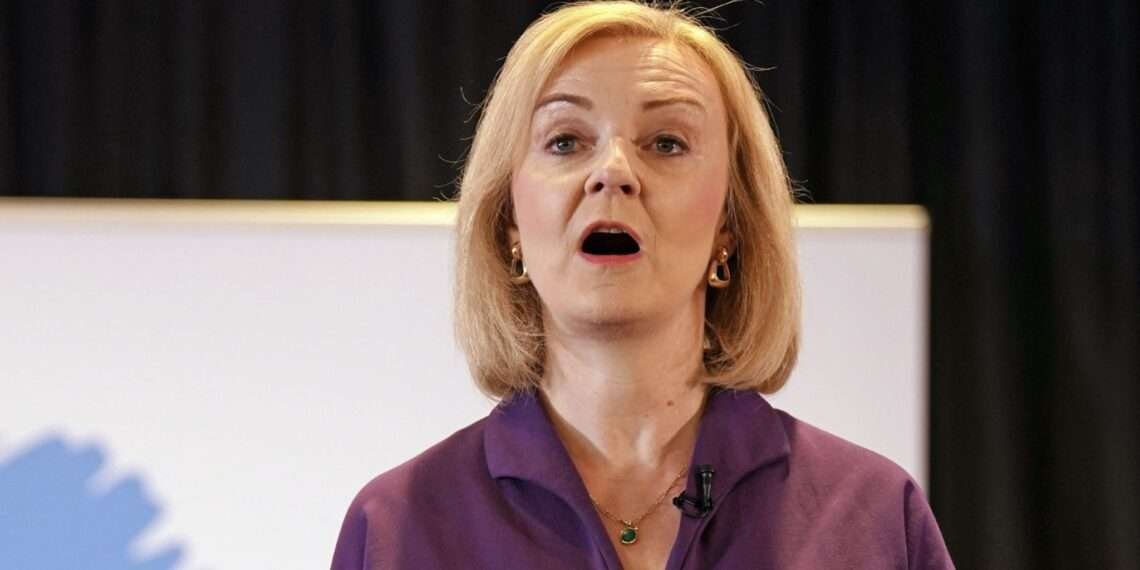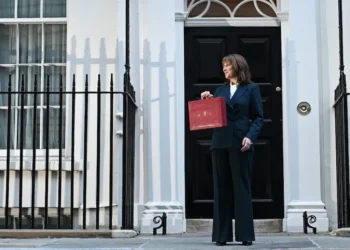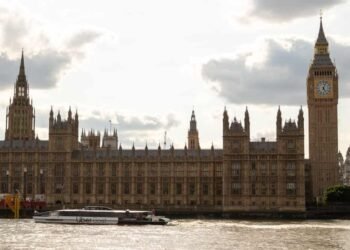UK Prime Minister, Liz Truss, has revealed that “currencies are under pressure around the world”, blaming Russia’s invasion of Ukraine for economic turbulence globally.
According to her, tax cuts outlined in the mini-budget are the “right plan”, despite market turmoil since they were announced last week. She noted that “urgent action” had been required to grow the economy and the cuts would help boost growth in the long term.
Truss explained that she was “prepared to do what it takes to make that happen”. However, Labour has called for the measures to be abandoned to restore market confidence.
In her first public comments since the cuts to income tax were announced by the chancellor, Ms Truss revealed that she was prepared to take “controversial and difficult decisions”.
Questioned about her reaction to the cuts, Ms Truss indicated that the UK had the highest tax burden in 70 years and cuts were needed to stave off an economic slump. Also, she noted “it’s not fair to have a recession” in the country, as there was “plenty of evidence” that reducing the tax burden would boost economic growth.
UK’s £45bn tax-cutting package, funded by more public borrowing, has sparked a fall in the pound and a surge in borrowing costs. The market reaction has prompted the Bank of England to step in and buy £65bn of government debt to stop some pension funds collapsing.
Government accused of undercutting key institutions
Meanwhile, former Bank of England governor, Mark Carney, has accused the government of “undercutting” the UK’s key economic institutions. He stated that the government’s tax-cutting measures were “working at some cross-purposes” with the Bank.
Mr Carney also pointed to a decision not to publish economic forecasts by the Office for Budget Responsibility (OBR) alongside Friday’s “mini-budget”.
Due to the tax cuts which affected financial markets and hit the pound, investors have been demanding a much higher return for investing in government bonds, causing some to halve in value. Pension funds, which invest in bonds, were forced to start selling, sparking fears of a fresh market downturn.
Speaking on this, Mr Carney noted that while the government was right to want to boost economic growth, “there is a lag between today and when that growth might come”.
“There was an undercutting of some of the institutions that underpin the overall approach – so not having an OBR forecast is much-commented upon and the government, I think, has accepted the need for that but that was important.”
Mark Carney
Mr Carney explained that unfortunately, having a partial budget, in these circumstances of “tough global economy, tough financial market position, working at cross-purposes with the Bank, has led to quite dramatic moves” in financial markets.
Mr Carney also underscored that the government’s mini-budget showed it was “working at some cross-purposes with the Bank in terms of short-term support for the economy.
Chancellor Kwasi Kwarteng unveiled the country’s biggest tax package in 50 years on Friday. But the £45bn-worth of tax cuts has sparked concerns that government borrowing could surge along with rising interest rates.
The Bank has a target to keep inflation at 2%. But prices are rising at their fastest rate in four decades and the Bank has been lifting interest rates to cool inflation. However, since the mini-budget, some economists believe interest rates could rise faster and higher, to as much as 6% by next May.
READ ALSO: Ghana To Fully Transition From Fossil Fuel To Renewable Energy By 2070- Dr Bawumia























